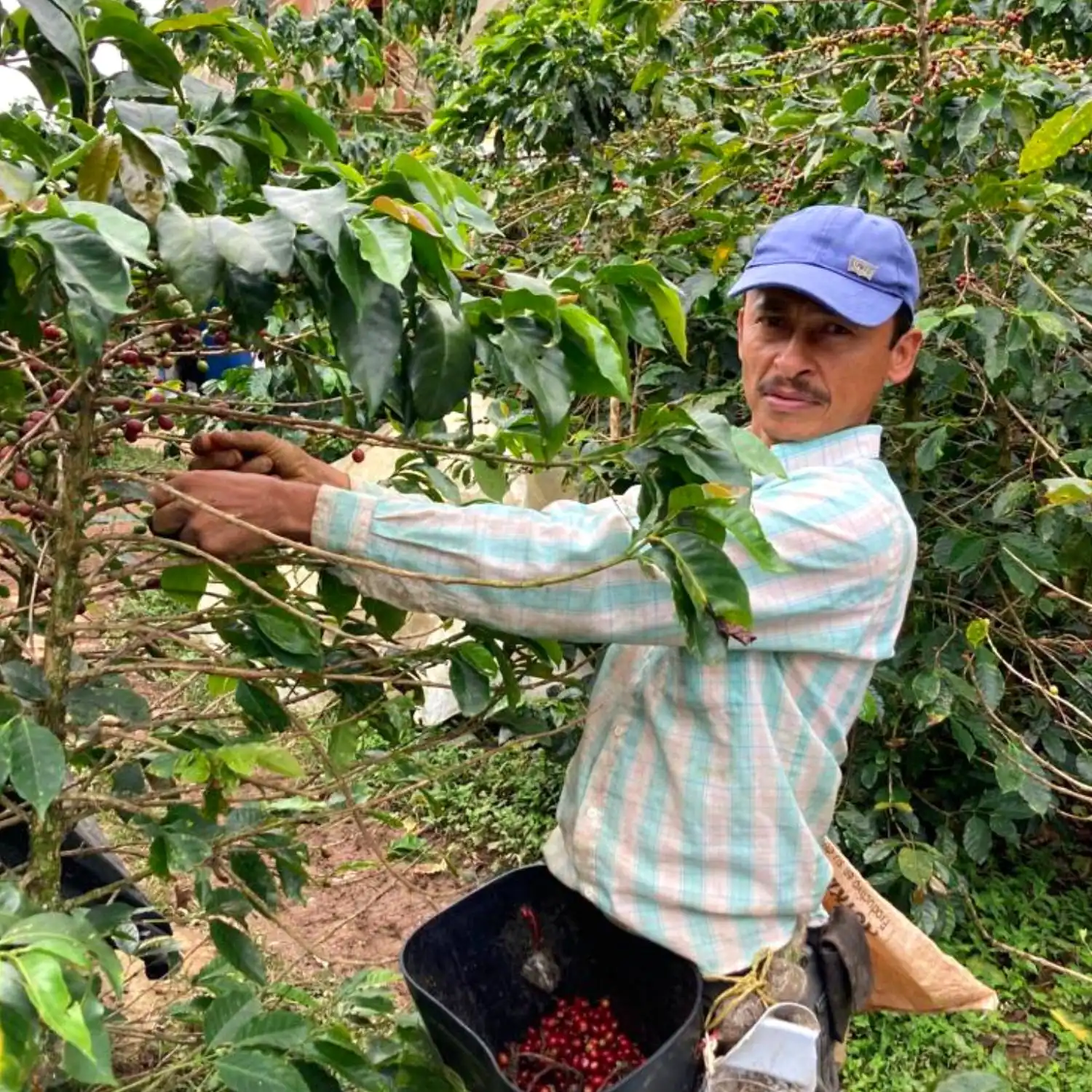
Nelson Taborda

Nelson Taborda was born and raised on coffee farms, and through his work and help from the government, he was able to own his own coffee farm, which he has been farming since he was 20 years old. He has always practiced traditional practices and sold coffee to the Colombian Coffee Growers Federation, but now he has embarked with great success on the production of a specialty coffee that has brought him and his family a better income and a better quality of life. The Taborda family works in the coffee industry, both in the trade and directly as farmers. Their farms are scattered in the hills of the beautiful village of Titiribí in the Antioquia region, about two hours from Colombia’s second largest city, Medellín. Nelson’s brother, Walter, has turned to business instead of farming and now, under the brand 1000Montañas, he brings together farmers around the settlement to produce natural coffees for both international markets and local cafes. Nelson is most passionate about honey processing and extended fermentation.
COUNTRY
Colombia
REGION
Titiribí, Antioquia
FARM
Finca Cruzitania
ALTITUDE
1 760 m
SIZE OF THE FARM
3-4 ha
ABOUT THE FARM
Crusitania farm has been in Mr. Nelson’s hands for 25 years, he acquired the land that was used as a cattle farm, cleared the land and started growing coffee, which is his passion.
„What makes our coffee special is that we take care of the soil where we grow it, without chemicals and with fertilizers that don’t steal nutrients from the soil, we help the soil produce coffee without damaging it. The benefits of our long-standing care of the soil are high productivity, high quality, higher ratings and better profiling. The disadvantages are the climate. The quality of coffee is very much dependent on climate and it is not easy to influence or prevent it.
Coffee is processed in the traditional way. It is harvested by hand using expert pickers to harvest as many ripe cherries as possible. It is dehulled using an electric machine, fermented in plastic tanks and the pulp is used as fertilizer. We try to reuse everything. Another innovation is the shelters or greenhouses that are specially designed for drying coffee. For subsistence processes, this is very much needed.“
ABOUT THE PROCESSES
Nelson Taborda is not following in his father’s footsteps, but is trying to grow and process coffee through unusual processes. He focuses exclusively on natural and honey processing.
LOT CO-23-026 Castillo - natural
Another batch of natural coffees from the Titiribí region is here! Again, it is a blend of Castillo and Colombia varieties that have been processed as a natural lot. That is, after harvesting and then washing and washing away the defective beans, the coffee was spread out on African beds and slowly dried in a controlled manner over a period of three weeks. It is pleasantly full-bodied and juicy like previous years!
CO-24-045 Walter Taborda N
The second season of natural coffees from the Titiribí region has brought major problems due to heavy rains. We managed to select this lot and continue to work with 1000Montañas. Despite its processing, the coffee is pleasant, fermented but not overly so, with notes of sweet fruit.









